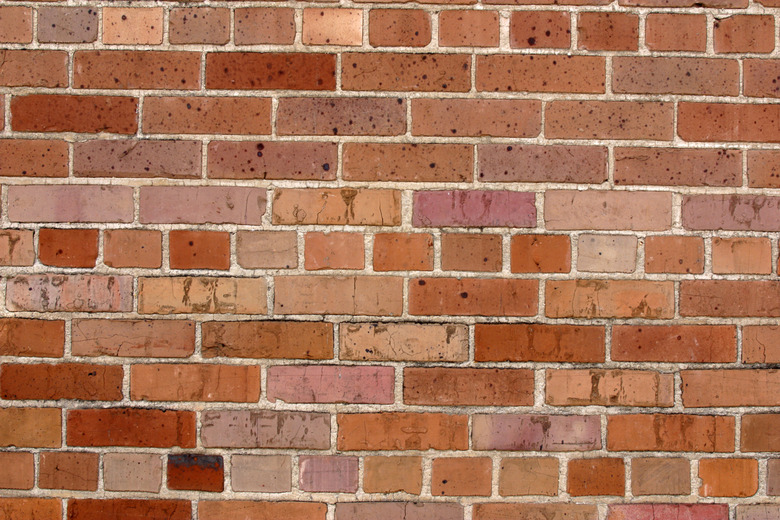Natural Ways To Clean Brick Walls
You don't have to expose yourself to harsh chemicals to clean brick walls. With the right equipment, you don't even need mild chemicals or any type of natural cleaner — you can get the job done with a strong blast of water. When choosing a method for cleaning brick naturally, first consider the location of the wall — an outdoor brick wall affords more cleaning options, while an indoor wall usually dictates cleaning by hand. Other factors include the size of the wall, the degree of dirt and the condition of the brick.
Water
Water
A pressured blast of water makes short work of many outdoor brick cleaning jobs. A regular garden hose with a spray attachment can remove some surface dirt, but for a deep clean, rent or buy a pressure washer. It takes some practice to get the hang of of using pressurized water, but the force of water itself cleans almost anything from brick — including some types of paint, so if you're cleaning painted brick, choose a less forceful method.
Vinegar
Vinegar
Vinegar can be used to clean indoor or outdoor brick. It's especially effective on efflorescence, the chalky white salt crystals that build up on the mortar. Mix 1 part white vinegar to 5 parts water and use it to remove the efflorescence with a scrub brush. After washing the brick wall with vinegar, you need to neutralize the acid with an alkaline solution, such as diluted ammonia. Follow the alkaline application with a water rinse.
Baking Soda
Baking Soda
You can clean heavily soiled indoor brick with a thin paste of baking soda and water. The mild abrasive in baking soda strips away dirt without causing damage to the brick and mortar. Rinse the area well to prevent a chalky haze from lingering on the brick. Baking soda also works as an alternative to sand and other abrasives in abrasive blasting, removing heavy soot buildup and unwanted paint without damaging the brick itself. Soda blasters are expensive and not widely available for rental, so you may want to hire a professional if the method fits your needs.
Abrasive Blasting
Abrasive Blasting
Abrasive blasting, both the most powerful method and the method most likely to cause damage, chips surface coatings like paint off brick walls. Experts typically recommend hiring a professional unless you're experienced with the equipment. Abrasive blasting may be the best option for difficult cleaning jobs, such as enamel-based graffiti. The method uses non-chemical abrasives such as sand, but the fine particles can cause respiratory distress if insufficient application of water allows them to disperse into the air.
References
- National Park Service Technical Preservation Services; Assessing Cleaning and Water-Repellent Treatments for Historic Masonry Buildings; Robert C. Mack, et al.; 2000
- Home & Garden Ideas; Cleaning a Brick Patio; Tammy Jo; April 2011
- SoCal Soda Blasting: Soda Blasting Applications
- Delaware Quarries Inc.: Efflorescence Causes, Removal, and Prevention
